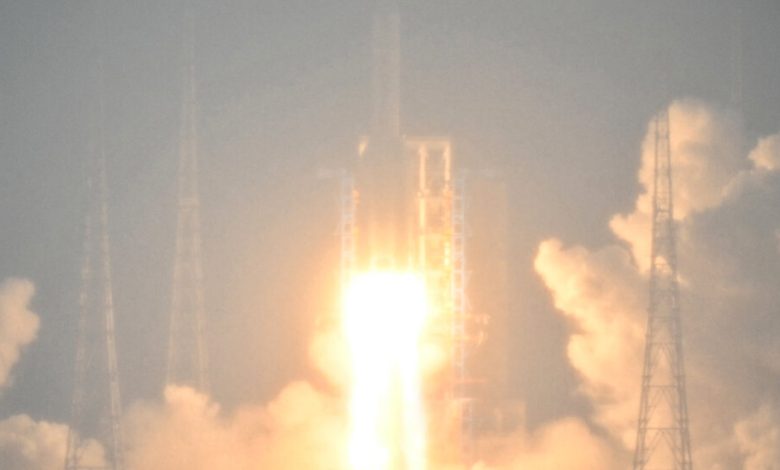China Lands Spacecraft on Far Side of the Moon

China successfully landed a lunar lander on the far side of the moon on Sunday morning, the country’s space agency announced, taking the mission one step closer to bringing back the first sample from the part of the moon that earthlings never see.
The Chang’e-6 unmanned probe touched down on the moon’s South Pole-Aitken basin at 6:23 a.m., China’s National Space Administration said in a statement.
The agency released a video taken by the landing camera as the probe touched down. In the video, the surface of the moon, pockmarked with craters, gets closer and closer as the lander descends.
Chang’e-6, named after the Chinese moon goddess, is the second mission to have touched down on the far side of the moon. Its predecessor, Chang’e-4, made history as the first to do so in 2019.
The far side of the moon is distinct from the near side, where the United States, China and what was then theSoviet Union have gathered samples. It has a thicker crust, more craters and fewer maria, or plains where lava once flowed. It’s unclear why the two sides of the moon are so different; the samples collected by Chang’e-6 could provide some clues.
The South Pole-Aitkin basin, a massive impact crater about 1,600 miles wide, is among the largest in the history of the solar system, and the impact that created it is thought to have dug up material from the lunar mantle. That material, if it can be retrieved, could help scientists learn more about the history of the moon’s insides.
